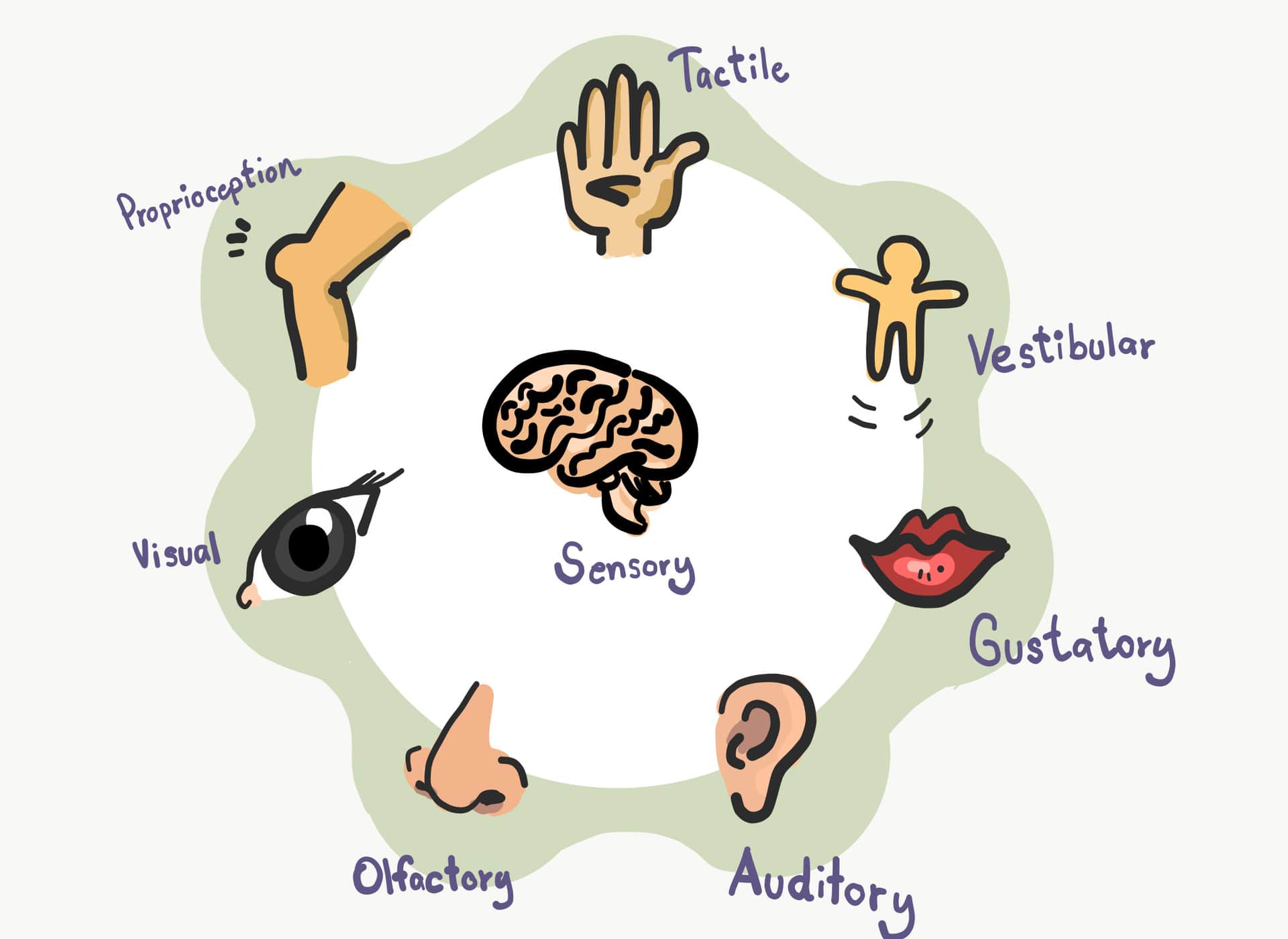By Talin Yacoubian OTD, OTR/L, CAS
Did you know that there are 7 senses that make up the sensory system and not just 5? You may be familiar with the following: vision, hearing, taste, smell, and touch. What about the other 2 senses you ask? The other two are the proprioceptive and vestibular senses. Let’s break these two down.
The proprioceptive sense is the ability to interpret your body position and the awareness of your body in space. This sense retrieves information from your muscles, joints, and bones to inform you about the movement of your body through muscles contracting, stretching, bending, and pulling. Proprioception allows you to walk without having to constantly look at where you are placing your feet. It also allows you to touch your nose with your index finger when your eyes are closed.
The vestibular sense is the ability to interpret information relating to movement and balance. This sense retrieves information from the semi-circular canals in the inner ear to understand movement, change in direction, change of head position, and gravitational pull to allow us to move smoothly. It provides your body with information about how fast or slow we are moving, balance, orientation in space, and body position. Vestibular sense allows us to maintain our balance while we jump, walk, run, sit, or stand or even change a position like going from sit to stand.
Why is this important? Well, all 7 of these systems need to work together for effective sensory processing. Sensory processing is how the brain registers, interprets and uses information from the sensory systems, which are listed above.
In children, difficulty with sensory processing can result in:
- Poor self-esteem
- Avoidance behaviors and unexplained outbursts
- Decreased social skills and participation in play
- Difficulties with daily life skills at home and school
- Anxiety
- Poor attention
- Poor motor skills development
If you feel that your child is experiencing difficulty with sensory processing, reach out to us to schedule an occupational therapy screening.




